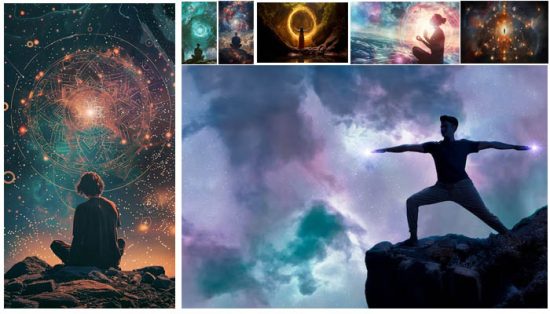“The law of attraction” and other nonsense

 By Dr Marcel de Roos, Psychologist PhD, the Netherlands.
By Dr Marcel de Roos, Psychologist PhD, the Netherlands.
Bestseller writer Rhonda Byrne (“The Secret”, 2006) tries to make you believe that “success in life” is something that you have in your own hands. Just visualise what you want, think positively, show gratitude, and you will receive from the universe what you wish for.
The book promotes to visualise in positive detail your ideal life and your ideal self. An excerpt of the book: “because visualising motivates you, and makes your fantasy reality. Visualisation transforms fear into dreams, and it transforms dreams into reality. Almost nobody knows this, but it’s our thoughts which creates the world.” And the dribble goes on…
The problem (and success) of the so called “law of attraction” is that (just like any religion) it can’t be proved nor invalidated. With success you thank the universe and your positive intention, in the case of an unwanted outcome, you blame your own insufficient efforts. It’s supposedly fail-proof, which is exactly the danger. If you disregard the scientific shortcomings of this so-called theory, then you can start to believe that anything is possible and when reality hits you, you will blame yourself.
Feelings of guilt and depression will increase because unpleasant things will continue to be there in our lives. Which isn’t only bad because it happens to you, but thanks to the “law of attraction” you’re solely responsible for it too. And friends can get enough from your always positive view on things. Sometimes people just want to feel a bit lousy in order to come to terms with adverse experiences. Well-meant but meaningless expressions like “the universe does this only to help you learn” can break friendships.
A too obsessive emphasis on the positive can damage the grieving process. We need time to cope with painful losses and shocking experiences. Moments of pleasure and deeply felt happiness will come naturally after some time. And being too positive is a danger in itself: you tend to disregard the red flags on your way and you overestimate your abilities. You don’t learn from your negative thoughts and emotions, these feelings have a story to tell which can be invaluable to your well-being.
To be very frank: believing in “the law of attraction” is quite psychotic. Thinking that you were rejected by an interesting person because you didn’t send enough positive thoughts to the universe is a sad form of magical thinking. Connecting negative thoughts to negative outcomes, or vice versa positive thoughts to positive ones is denying other more plausible factors. “The law of attraction” is a vicious cycle which denies reality. For example, being born in the Bronx in New York (as opposed to being born in an affluent academic Bostonian family), there is extreme little chance that you will end up in Harvard. Real life works like this: success often comes with commitment, but besides this a lot of other factors have to be in place. Like education, your parents social, academic level, their ability to guide you and to show empathy, your IQ, the neighbourhood and country you grow up in, your ethnicity, the family wealth, your network, they all play a significant role in your chances for the future.
Nowadays, “manifesting” is the buzz word (see for example Gabby Bernstein). Believing that you attract with your negative/positive thoughts negative/positive things in your life, which the universe delivers. Positive gurus like Norman Vincent Peale (“The power of positive thinking”, 1952), Anthony Robbins (“Awaken the giant within”, 1991), Rhonda Byrne (“The Secret”, 2006) and Martin Seligman, the founder of the “positive psychology” movement (“Authentic Happiness”, 2002 and “Flourish”, 2011) make us believe that continuous happiness is within our reach. We just have to follow what they advise in their books and our worries will disappear. From this list, “The Secret” is by far the shallowest one and filled with silly quotes and superstitious nonsense.






